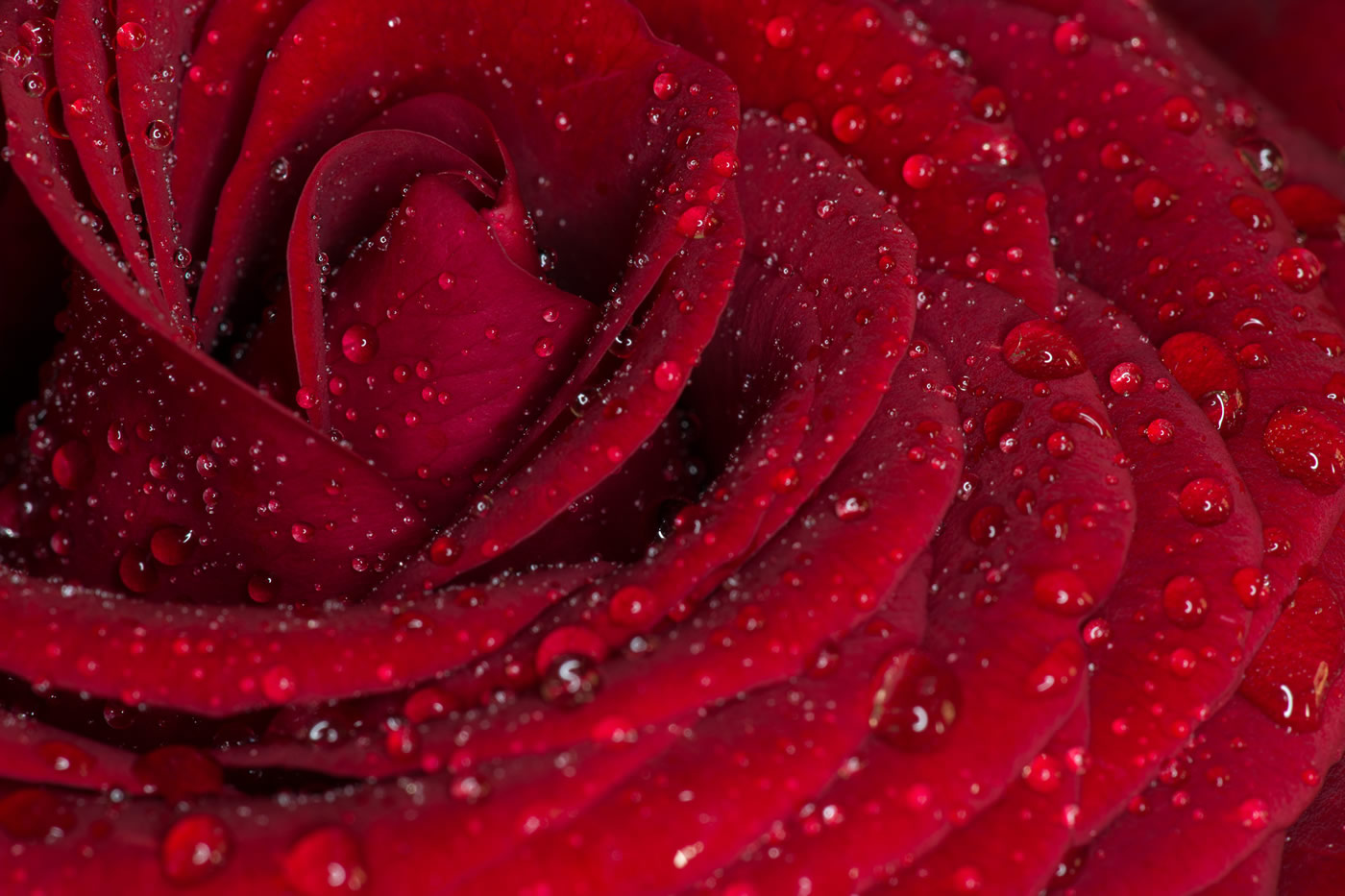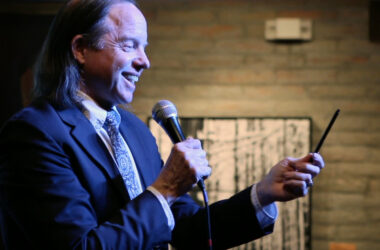Class 15: Arming the Bomb
[su_icon icon=”icon: link” color=”#ff1259″ size=”20″ shape_size=”12″ url=”https://youtu.be/prImKz8BpDg?t=6s” target=”blank”]Video[/su_icon]Hi, welcome back to the at-home Lam Rim retreat.. We’ve reached session number 15. The name of this session is “Arming the Bomb.” And the picture I chose is somebody turning on a landmine. So they carry those landmines around, they are not armed, they are not turned on. Then they put them underground. They turn it on and they hide it. So we are talking about a karmic seed. At link number two, that seed was planted in the consciousness. It’s like first putting a watermelon seed under the ground.
I didn’t grow up gardening. I thought Xīguā, watermelon, were grown in the store. Then I spent more time with Veronica — she loves gardening — and so I got more aware of how plants are grown. Right now in Arizona, it’s March—we just bought our watermelon seeds and in the next week or two we will put them in the ground. So you put them in the ground and then you cover it with dirt. That’s like the karmic seed planted at link number two. The guy is making the pots. Now, I think it’s a fascinating thing, for the first two or three weeks that seed will sit there underground. Now if you put that seed in your drawer, in your desk, it can sit there for a long, long time. For two or three years, and it’s not going to open.
But if you put it underground, and you start watering, and you start fertilizing, something in this seed wakes up. And in my mind I always picture it like this. The water comes down through the soil, the water touches the seed, and it starts to seep into the seed and the water wakes up all the factory workers inside the seed. And they’re like “Water, water! It’s time, they got the water! Okay, let’s get this watermelon plant going!” They all start running around the seed, like a factory, and it wakes the seed up. And then two or three weeks later the seed actually gets fatter, it’s almost like a balloon. And then, it’s like you pop a balloon, and then “boom,” this first sprout comes out. And it grows for three four months and then you get watermelons.
[su_icon icon=”icon: link” color=”#ff1259″ size=”20″ shape_size=”12″ url=”https://youtu.be/prImKz8BpDg?t=4m40s” target=”blank”]Video[/su_icon]And by the way, if you want to go deeper, Arya Nagarjuna—sometimes he is called “The Arya,” which means “the coolest guy who saw emptiness directly.” I’ll just throw a little bit of seed in your mind. Nagarjuna would say that the water never touches the seed. So how can that seed grow then? Well to learn the answer to that, you’re going to have to come and look at our special video series about Nagarjuna. We are translating his greatest book. It’s a commentary by the greatest Tibetan lama of all time, Choney Lama. Almost the greatest. Except for my lama and Tsongkapa. But we’re going to be talking about that in our special Nagarjuna class.
Okay, let’s go back. That seed was put under the ground in link number two. The seed was planted in your mind and it sat there under the ground, and something—water and fertilizer—came down and touched it. And because of the water and the fertilizer, the seed started get fat, fat, fat, fat, fat. Then it was ready to split open and make a sprout. So now the question comes, what is the power or force which is like fertilizer or water for a mental seed? What makes the factory workers inside the mental seed wake up and start working to push out the sprout?
[su_icon icon=”icon: link” color=”#ff1259″ size=”20″ shape_size=”12″ url=”https://youtu.be/prImKz8BpDg?t=7m36s” target=”blank”]Video[/su_icon]Now there are two links, number eight and number nine—technically they are called “beginning desire” and then “advanced desire.” They are the force which makes the seed factory workers start running around and working to push the sprout out. So I have a special strategy for these two. I’m going to read the text to you, you can see the lower school idea about what wakes up the seed, or what makes the seed fat. And then when we finish the text, I’m going to take you into a more advanced understanding of what makes this seed fat and strong.

First we’re going to start with link number eight. “Beginning desire,” “initial desire,” and the picture is a … it’s a terrible painting, I’m sorry, but it’s a big fat man, not a lady, having a feast. Overeating. And this Fēicháng pàng (非常胖), this fat guy, what does he represent? gyepa sepa (BRGYAD PA SRED PA) means “link number eight is called beginning desire.” And the lower school explanation, you get different kinds of desire that start in your heart. Here’s one: tsorwa dewa la mindrelwar dupay sepa (TSOR BA BDE BA LA MI ‘BRAL BAR ‘DOD PA’I SRED PA) means “you feel this desire that you don’t want to lose the things that felt good to you” in link number seven. Or there’s another version of this desire. dukgnelwa la drel du kyi sepa (SDUG BSNGAL BA LA ‘BRAL ‘DOD KYI SRED PA) means “you do want to get away from something that was painful” during link number seven. So you have drelwar shenpa (‘BRAL BAR ZHEN PA). drelwar shenpa means you get a strong desire that you either don’t want to, or you do want to get away from that thing.
tang nyom la mi nyampay chir du sepa yin (BTANG SNYOMS LA MI NYAMS PA’I PHYIR DU SRED PA YIN). tang nyom la (BTANG SNYOMS LA)—you can also have a neutral feeling and you can have a hope that it’s going to go on. So that would be another kind of desire. tsorway kyen gyi sepa kyewar shepa ni (TSOR BA’I RKYEN GYIS SRED PA SKYE BAR BSHAD PA NI)—when we say that the link number seven of feeling has triggered desire at link number eight—beginning desire. When we say that number seven, feeling, is triggering desire, gong (DGONGS) in the next sentence means “what we’re really saying.” gong, “the real thought.” saṃdhi-nirmocana. We’re talking about feelings that have been triggered by number six, which is contact with the outside world.
[su_icon icon=”icon: link” color=”#ff1259″ size=”20″ shape_size=”12″ url=”https://youtu.be/prImKz8BpDg?t=12m42s” target=”blank”]Video[/su_icon]But we’re talking about special kind of ‘contact’ with the outside world, which is mixed up with misunderstanding. The wife has eyes when she comes in the kitchen, then she opens her eyes and she kind of opens her ears, and then there’s the red face of the husband and the yelling “You’re stupid!” And her mind makes contact with those sounds and those shapes. But that contact with his red face and his loud words, it’s mixed up with misunderstanding where he’s coming from. Can you hear your husband calling you stupid? “Yeah, I hear.” What’s the feeling in the back of your mind? “I didn’t do anything and he’s yelling at me.” And in that case, the contact with the red face and the contact with the loud words is mixed up with misunderstanding.
And if that contact creates a feeling of anger, and that anger creates a desire at link number eight to get out of the kitchen, divorce this guy, then we have bad karmas and dirty good karmas getting woken up. But he says marikpa me na (MA RIG PA MED NA)—if the wife at that moment says, “he’s yelling at me because I yelled at my kids,” she’s still going to have feeling, but she’s not going to have this link number eight desire to get away. And that’s a subtle thing we have to talk about it—it doesn’t mean she doesn’t want to get out of the kitchen. It means she wants to stop it, but she understands how to stop it. Don’t forget I’m still kind of keeping to the lower school.
[su_icon icon=”icon: link” color=”#ff1259″ size=”20″ shape_size=”12″ url=”https://youtu.be/prImKz8BpDg?t=15m50s” target=”blank”]Video[/su_icon]
Okay, link number nine. The picture is a monkey grabbing a fruit. And here’s the definition of it: gupa lenpa ni, sepa je cher pelwe (DGU PA LEN PA NI, SRED PA JE CHER ‘PHEL BAS)—at link number nine, which is called “advanced desire,” your desire gets stronger and stronger, yul la dun ching chakpa te (YUL LA ‘DUN CING CHAGS PA STE), and then you get a special craving for the object and that craving can come in four different kinds. Generally. Not as this link, okay, but generally. He should have said that, and a lot of the texts on the twelve links start discussing the divisions of desire in general, but not link number nine desire.
So it can be a little bit confusing. In general, here’s four kinds of desire. dupa nyewar lenpa ni du yun la chakpa (‘DOD PA NYE BAR LEN PA NI ‘DOD YON LA CHAGS PA)—(1) is called “desire for desirable things.” And that’s called du yun la chakpa (‘DOD YON LA CHAGS PA). du yun la chakpa means “attraction to beautiful things,” like nice clothes, tasty food, or the feeling of sex. These are all kinds of attraction to the objects of desire.
Then there’s (2) tawa nyewar lenpa (LTA BA NYE BAR LEN PA), which means “desire for thinking of things a certain way,” “desire for certain viewpoints.” And this is described as ta ngen la chakpa (LTA NGAN LA CHAGS PA)—”attachment to negative … wrong viewpoints.” “Bad viewpoints.” Like, “Oh hey, there’s no karma. You can do what you want.” So that’s a viewpoint, and it’s completely wrong, but you can get attached to it, like alcoholism. So the second kind of advanced desire in this list is an attraction to mistaken ideas. Except a special one and we’re saving that one for later. That one is “wrong idea about me.” That’s coming later.
Okay (3), tsultrim dang tul shuk nyewar lenpa ni ta ngen dang dreway tsultrim dang trul shuk menpa la chakpa (TSUL KHRIMS DANG BRTUL ZHUGS NYE BAR LEN PA NI LTA NGAN DANG ‘BREL BA’I TSUL KHRIMS DANG BRTUL ZHUGS DMAN PA LA CHAGS PA) There’s a special wrong idea called tsultrim dang tul shuk gyi tawa (TSUL KHRIMS DANG BRTUL ZHUGS GYI LTA BA)—attachment to wrong kinds of morality and attachment to wrong kinds of asceticism, like difficult spiritual practices. So tsultrim (TSUL KHRIMS), here I said “ethics,” but I should say, I think, “a code of life.” And there is such a thing as a negative code of life, people commit to that negative code of life. There’s a couple of examples in the ancient books. There used to be strict trades in India—your father’s a butcher, you should be a butcher. And that person, when they reach a training time, They’ll make a commitment, “I will follow the life of a butcher,” “I will be a soldier.” That’s one example.
The other is called tul shuk (BRTUL ZHUGS). These are difficult practices that are supposed to be spiritual, but actually just hurt you. There were many many in India. One of them you hold your arm up for two years. And if you can keep it up then you’re a good spiritual person, you can do something tough and hard, and the arm doesn’t get enough blood and it shrinks, and after that you cannot use it. Then they say, “Oh, he’s very spiritual.” There are many religions where if you hurt yourself, it’s some special spiritual practice. So attraction to those is the third kind of negative desire.
[su_icon icon=”icon: link” color=”#ff1259″ size=”20″ shape_size=”12″ url=”https://youtu.be/prImKz8BpDg?t=23m11s” target=”blank”]Video[/su_icon](4) dak tu mawa nyewar lenpa ni (BDAG TU SMRA BA NYE BAR LEN PA NI)—you are super attracted to saying, “I am me,” “Michael is Michael.” You could say “self-nature,” but that’s kind of confusing. For example, is water wet? Can you say that water it wet? Sure. Can you walk on water? No, not possible Why? Water is wet. You’re going to to fall down. Then Buddhism, the deepest Buddhism, it says the wetness of water and the hotness of fire are not inside the water and they are not inside the fire. Your seeds put the hot in the fire. And your seeds put the wet in the water.
And your seeds put the angry words in your husband’s mouth. And even what you hear in your own mind, what you hear when you listen to your own thoughts—those thoughts are also coming out of seeds, and the listener is coming out of seeds. So in a way, the husband in the kitchen is not my husband. “Why do you say that?” I’m talking about the one where you say, “I didn’t do anything and he yelled at me.” It’s impossible for there to exist, in a billion years, any husband where the wife “didn’t do anything.” Because the husband is coming from the seeds in the wife’s mind.
Now if we don’t understand why the husband is yelling at me, if you don’t understand where the husband is coming from, then you will link two—you you will say, “No, you’re stupid,” and you will make new karma. But if you understand who the husband really is—”This husband is yelling at me because I yelled at my kids last week; I put a seed in my mind.” So the fourth kind of advanced desire here, link number nine, it refers to misunderstanding “me,” and “my” things, “my” husband, “my” house, “my” kids.
[su_icon icon=”icon: link” color=”#ff1259″ size=”20″ shape_size=”12″ url=”https://youtu.be/prImKz8BpDg?t=27m07s” target=”blank”]Video[/su_icon]And that’s a good place to go to the higher school’s understanding of these two links. What is it that makes the seed start to get fat under the ground, until it’s ready to crack open? What’s the real water and fertilizer—which we can say is link eight and link nine, what’s the real water and fertilizer that makes a mental seed get ready to open? And don’t forget that mental seed that we planted in link number two is in the Wheel of Life, and it’s something bad. And in link number eight and link number nine we are turning on the bomb. And it’s going to explode.
So you guys, if you came to the Diamond Cutter Institute programs, or ACI programs, you studied le lam (LAS LAM), karma marga, you studied the four steps. So I ask you, how do you make a good seed grow faster and bigger? Tim? Coffee meditation! Thinking about your good seeds. Taking joy that you are doing good deeds. And understanding what you are doing during your coffee meditation. Those thoughts are like sunlight, they’re like water, they are like fertilizer on the good seeds. So if there was a Wheel of Life for a good life Link number eight and link number nine would be something like coffee meditation about the person you helped this afternoon—and don’t forget during coffee meditation, you have two kinds of coffee meditation joined together: this one, “I’m so happy I helped somebody this afternoon,” and this one, “I’m so happy I have a new way to make money,” for example, which is helping the person this afternoon. “I’m happy I helped the person this afternoon. And I’m happy I have a new system where helping other people is how I get money.” So take those two and do a coffee meditation. That’s how to make a good seed grow bigger and faster.
[su_icon icon=”icon: link” color=”#ff1259″ size=”20″ shape_size=”12″ url=”https://youtu.be/prImKz8BpDg?t=31m11s” target=”blank”]Video[/su_icon]Now, what’s the real link eight? What’s the real link nine? Because now we’re talking about bad seeds. And I will give you a new eight and nine. Number eight: did you kill a pig last week? “Yes.” Are you sorry? “Nope!” Okay, that’s like link number eight for a bad seed. It’s like a negative coffee meditation. “Yeah, I’m glad I killed a pig. Now I got more protein. I’ll be a stronger person.” It is a completely stupid idea. Then what’s a deeper kind of water and fertilizer? And this is where I wanted to take you by the end of today, session 15.
So listen, just understanding this system of the Wheel of Life is like sunlight on your good seeds. And the opposite of that: you don’t study, you don’t understand, you don’t work hard to to see emptiness, you don’t meditate every day, just that not understanding the system, and not doing it, that’s the real link number nine. So if link number eight, for bad seeds, is to enjoy that you hurt somebody and you don’t feel bad, which is the half of a negative coffee meditation, then the more serious light on the bad seed is that you don’t understand seeds at all.
What’s the real “advanced desire,” link number nine? In the higher school, that seed is going to get fat and powerful and open faster if it has not sunlight, but radiation. Poison radiation coming from your mind: “Ah, this seed stuff is stupid!” The pen is a pen.” That thinking makes the bad seeds grow faster and stronger. And those are the real link number eight and link number nine for the “wheel of pain.” “I’m not sorry I hurt someone. He deserved it. He hurt me.” “He called me ‘stupid’. I’m not sorry I called my husband ‘stupid’.” Well, aren’t you worried about planting bad seeds? “That’s ridiculous!” Then you just did eight and nine.
Okay, so let’s be careful. Number one, don’t yell at your husband, even if he’s stupid don’t yell at him. Stay quiet, kill the seed. And link number nine, respect the seeds. Study more, and more, and more. Even if you can’t stop fighting with your husband, keep learning more, and more, and more. And then there will be sunlight in your mind which makes these good seeds grow and the bad seeds stop.
Okay, see you in session 16. We’re going to talk about the fat seed.
Thank you, and thanks for translating, Stanley.








